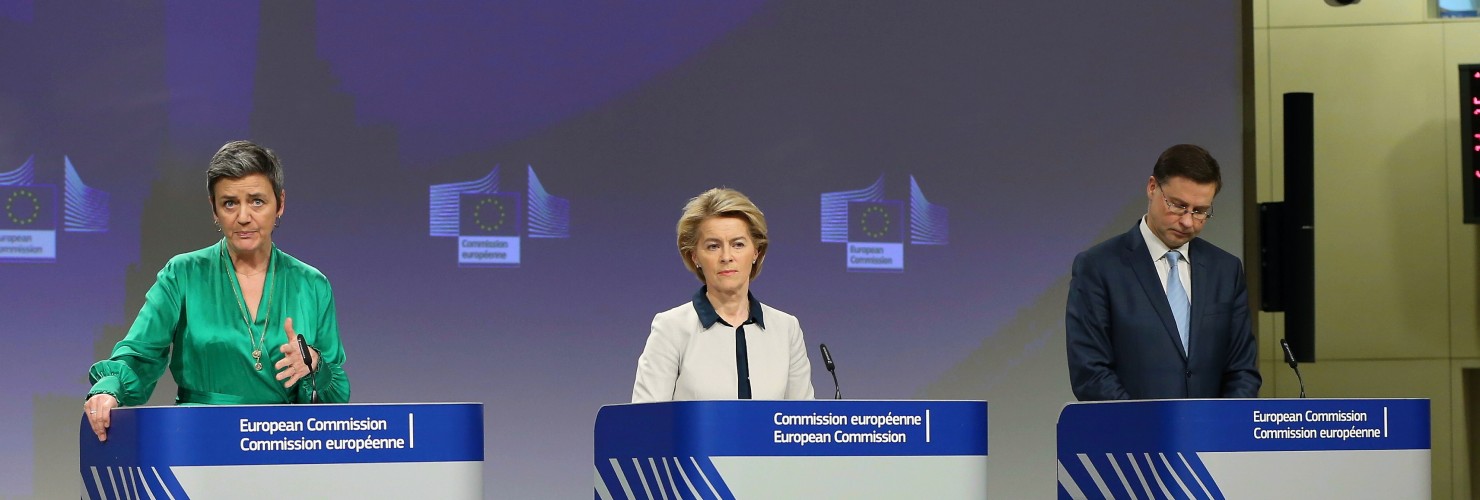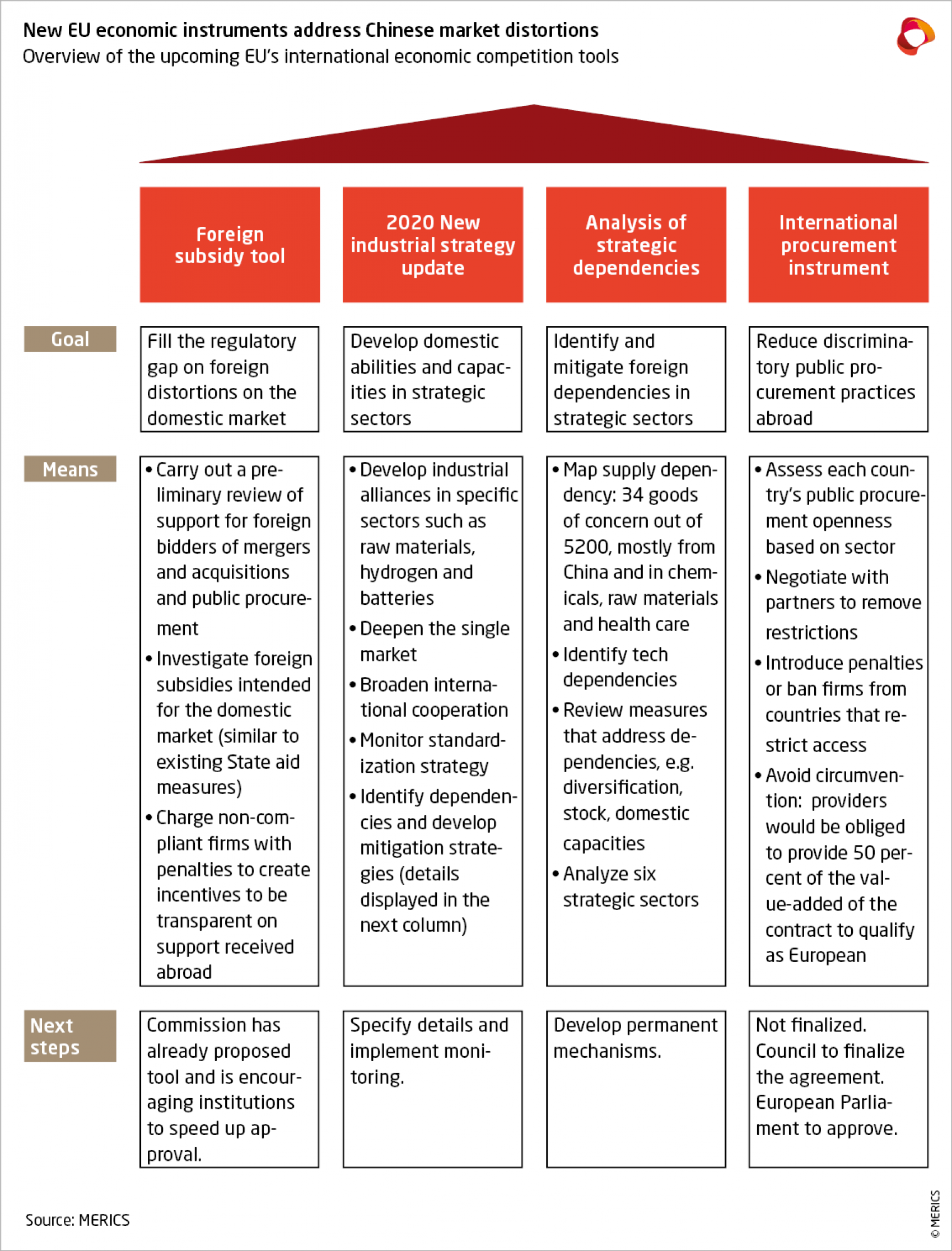

EU beefs up ability to compete ahead of international discussions on rules
The Commission is living up to its word and building up its ability to be assertive in international economic competition.
A look at recent activity provides plenty of evidence. Proposals from the European Commission over the past few weeks include a tool to tackle the domestic impact of foreign subsidies, a methodology for monitoring foreign economic vulnerabilities, an update of its 2020 industrial policy with specific efforts in strategic sectors and a standardization strategy on key technologies, and a regulation on Artificial Intelligence barring uses “contravening the Union values or violating fundamental rights”. Meanwhile, the Portuguese presidency of the Council has declared it wants to agree the International Procurement Instrument (IPI) by year-end, allowing the EU to deny access to public procurement for firms from countries without reciprocal access to public tenders. The EU has even activated a rarely used Trade Barriers Regulation. This comes on top of dynamic and innovative use of traditional trade defense.
MERICS take: Responding to criticism of the Comprehensive Agreement on Investment with China, finalized at the end of 2020, the Commission replied that EU strategy on China should be assessed in the context of all its new tools. Indeed, these have the potential to rebalance its approach between cooperation and competition, especially as they fill a few empty spaces in the EU’s international competition toolbox. The foreign subsidy tool, for instance, would enable the EU to shield the Single Market from goods and services, produced by firms subsidized abroad or State sponsored acquisitions. They also reinforce the EU’s negotiation position ahead of discussions about international rules on trade and market access.
What to watch: These new tools are all still at the proposition stage and there is quite a way to go before they can be used. Even then, the EU would need to demonstrate its resoluteness and ability to use them to make the changes effective. Such efforts are likely to be part of international discussions, first and foremost with the United States and China. Macron and Merkel are reportedly planning joint trips to both countries, while Biden – whose administration has yet to clarify its positions regarding Chinese distortive economic practices – is expected in Europe in June.
Read more:
- European Commission: Regulation of the European Parliament and of the Council on foreign subsidies distorting the internal market
- European Commission: Updating the 2020 New Industrial Strategy: Building a stronger Single Market for Europe’s recovery
- European Commission: Strategic dependencies and capacities
- European Commission: Trade barriers: EU concludes two examinations on ceramic tiles and on Tequila
- BDI [DE]: Level playing field in international competition
- Politico: EU readies response to Biden’s ‘Buy American’ pitch
- MERICS: The EU targets distortions in the Chinese aluminum value chain
You are reading an excerpt of our latest MERICS EU-China Briefing.
You can subscribe to this publication on an individual basis. For more information on our packages, click here.
MERICS members also have privileged access to this product. If you want to learn more about our membership model for institutions and businesses, please click here.,
If you are a MERICS member, you can access the full publication here.


